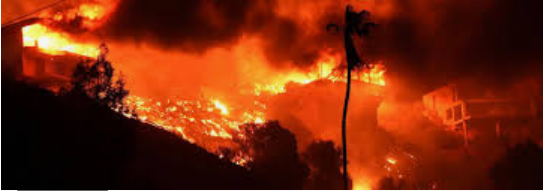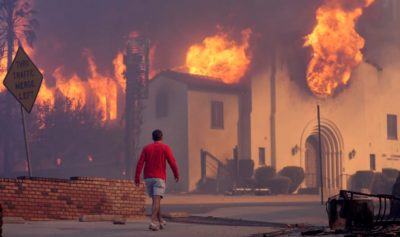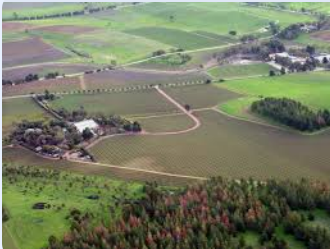January 15th, 2025
BURLINGTON, ON
Today is the day there should be funds in your bank account from the federal government.
It is the latest quarterly Canada Carbon Rebate goes out; the vast majority of recipients get more back from the government than they pay in carbon taxes.
While the “carbon tax” may get some negative attention, the rebate is good news for everyone. The more people learn about the rebate, the more they are supportive of the pollution pricing system.
For a family of 4 in Ontario the estimated quarterly payment is $280, and will be labeled through direct deposit banking as the “Canada Carbon Rebate”.
In addition, residents of small and rural communities get an additional 20% top-up to the base rebate amount.
The total payment (4 quarterly payments) from April 2024 to January 2025 is estimated at $1,120.
The majority of households in Ontario receive more money back through the rebate than they pay, with low- and middle-income households benefitting the most, helping them with their cost-of-living challenges.
All money stays within the province where it is collected and refunded back to people. Canadians receive the same amount as everyone else in their province, which means that those who pollute less come out even more on top. It’s people with many cars and fancy boats who generally end up paying more than they get back.
Despite Conservative leader Pierre Poilievre’s misinformation campaign on carbon pricing, Canada’s approach to carbon pricing does not create inflation or increase the cost of living.

There is a direct link between carbon emissions, greenhouse gasses, and forest fires that are out of control in the United States
A price on pollution is widely recognized as the most efficient way to reduce greenhouse gas emissions, which are contributing to more intense wildfires, droughts and floods caused by climate change. Canada’s approach to pollution pricing is also designed to return money directly to people’s pockets.
Canadians can have it both ways—progress towards cleaner air and a stronger economy.
Related news story



















Have you looked at your gas bill lately?
the Carbon Tax costs more than the Gas.
To suggest that carbon pricing can reduce GHG emissions and then link it to fires in LA is sinful and deplorable and disrespectful of the people fighting the fires and those that have lost their lives or homes.
Santa Anna winds have been in exitance for thousands of years. These fires were either started by arson or homeless/drug encampments.
I expect the details of the governments preparedness and response will come out in congressional hearings. What we are hearing so far is not very complementary.
Philip, your points are spot on and align with my own estimates.
To blame the California fires on arson and homeless camps is equally deplorable. Is that what burned down Fort Mcmurray and Lytton too?
The CT is in part an income redistribution program. Not sure how that drives down carbon consumption. Those that get the least can afford Teslas so for them the CT is chump change. Net Zero Carney will keep it going.
“Despite Conservative leader Pierre Poilievre’s misinformation campaign on carbon pricing, Canada’s approach to carbon pricing does not create inflation or increase the cost of living.” Indirect taxes by their very nature are inflationary and the carbon tax is particularly egregious in doing so. In a modern economy such as Canada’s which is characterized by long distribution channels and long transportation routes, the cost of energy is a significant cost factor for all businesses. By pushing up the cost of doing business, in a compounding manner at each stage of the distribution channel, the effect is significant.
The myth that Ontarians get back more than they pay is a Liberal LIE. In my case, I’m a middle-income retiree who also works part-time and who owns his own home. In the past year, my carbon tax rebate has been $560. Sounds good at first until I calculate how much I’ve paid in DIRECT carbon taxes(not easy for anyone since the Liberals enjoy hiding the actual impact of the carbon tax). But here’s my estimate–I will pay $549 in carbon taxes (+HST on the carbon tax) on gasoline and in reviewing my natural gas bills for the past year, I’ve paid just over $190 in carbon taxes (+HST on the carbon tax) for natural gas. So far I’m in the red by $179. But I’m not finished–Trudeau also implemented his so-called clean fuel regulation (carbon tax II) which has also impacted my fuel cost somewhere between 10 cents per litre and 20 cents per litre. Net result–the impact on my gasoline costs is at least 22% higher than they would otherwise be and the impact on my home heating is 27% higher.
But I’m still not finished. I still have to calculate the INDIRECT carbon taxes that I have to pay in the form of higher prices. Even if that the carbon tax regimen has only added 1% to the prices of all other goods and services including property taxes I purchase (excluding home heating and gasoline) and it is likely higher than 1%, I still paid an additional $380 in carbon taxes.
The net result is that I’m out of pocket at least $550 after the rebate. And my analysis would hold true for most Ontario residents who commute to work and have 4 or fewer people in the family. Not quite the Liberal mythology that this article promotes.